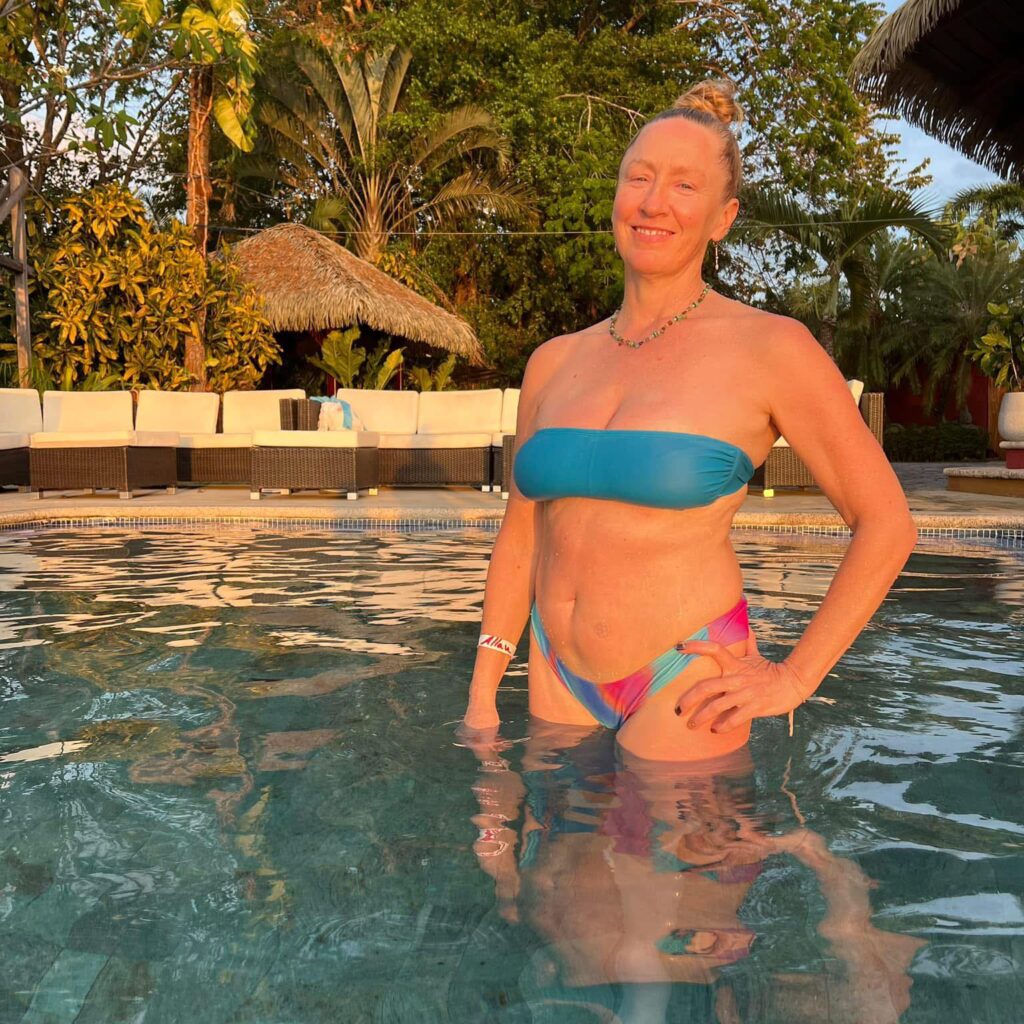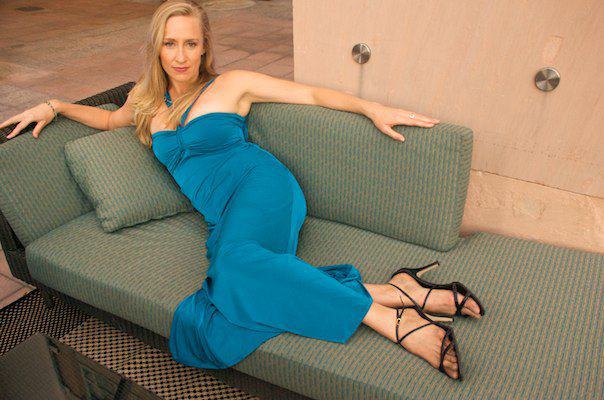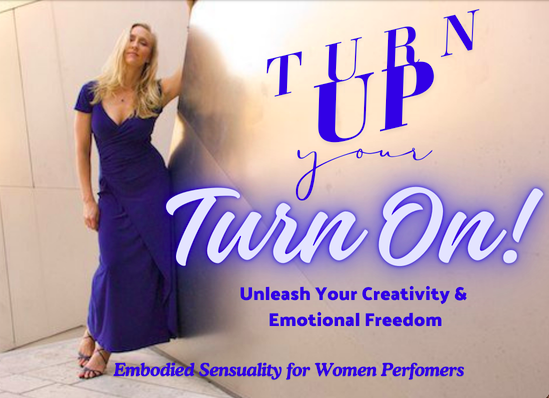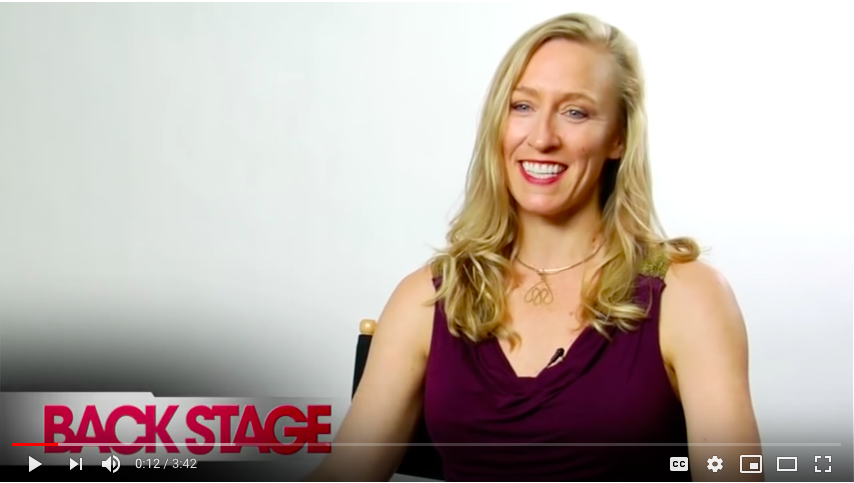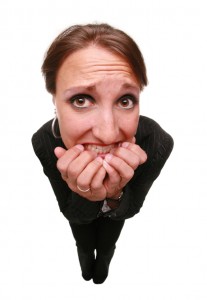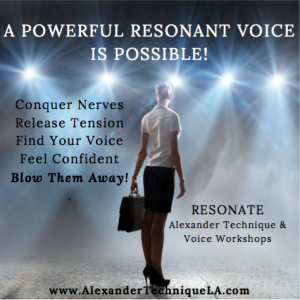[Paper delivered at the Fourth Berkshire Conference on the History of Women, Mount Holyoke College, August 25, 1978. Published as a pamphlet by Out & Out Books (available from The Crossing Press). Reprinted in Sister
Outsider: Essays and Speeches by Audre Lorde, Crossing Press:1984]
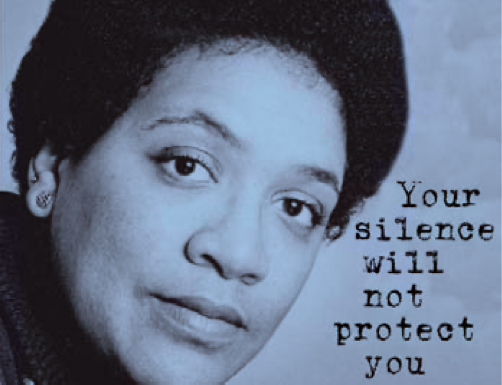
THERE ARE MANY kinds of power, used and unused, acknowledged or otherwise. The erotic is a resource within each of us that lies in a deeply female and spiritual plane, firmly rooted in the power of our unexpressed or unrecognized feeling. In order to perpetuate itself, every oppression must corrupt or distort those various sources of power within the culture of the oppressed that can provide energy for change. For women, this has meant a suppression of the erotic as a considered source of power and information within our lives.
We have been taught to suspect this resource, vilified, abused, and devalued within western society. On the one hand, the superficially erotic has been encouraged as a sign of female inferiority; on the other hand, women have been made to suffer and to feel both contemptible and suspect by virtue of its existence.
It is a short step from there to the false belief that only by the suppression of the erotic within our lives and consciousness can women be truly strong. But that strength is illusory, for it is fashioned within the context of male models of power.
As women, we have come to distrust that power which rises from our deepest and nonrational knowledge. We have been warned against it all our lives by the male world, which values this depth of feeling enough to keep women around in order to exercise it in the service of men, but which fears this same depth too much to examine the possibilities of it within themselves. So women are maintained at a distant/inferior position to be psychically milked, much the same way ants maintain colonies of aphids to provide a life-giving substance for their masters.
But the erotic offers a well of replenishing and provocative force to the woman who does not fear its revelation, nor succumb to the belief that sensation is enough.
The erotic has often been misnamed by men and used against women. It has been made into the confused, the trivial, the psychotic, the plasticized sensation. For this reason, we have often turned away from the exploration and consideration of the erotic as a source of power and information, confusing it with its opposite, the pornographic. But pornography is a direct denial of the power of the erotic, for it represents the suppression of true feeling. Pornography emphasizes sensation without feeling.

The erotic is a measure between the beginnings of our sense of self and the chaos of our strongest feelings. It is an internal sense of satisfaction to which, once we have experienced it, we know we can aspire. For having experienced the fullness of this depth of feeling and recognizing its power, in honour and self-respect we can require no less of ourselves.
It is never easy to demand the most from ourselves, from our lives, from our work. To encourage excellence is to go beyond the encouraged mediocrity of our society is to encourage excellence. But giving in to the fear of feeling and working to capacity is a luxury only the unintentional can afford, and the unintentional are those who do not wish to guide their own destinies.
This internal requirement toward excellence which we learn from the erotic must not be misconstrued as demanding the impossible from ourselves nor from others. Such a demand incapacitates everyone in the process. For the erotic is not a question only of what we do; it is a question of how acutely and fully we can feel in the doing. Once we know the extent to which we are capable of feeling that sense of satisfaction and completion, we can then observe which of our various life endeavours bring us closest to that fullness.
The aim of each thing which we do is to make our lives and the lives of our children richer and more possible. Within the celebration of the erotic in all our endeavours, my work becomes a conscious decision – a longed-for bed which I enter gratefully and from which I rise up empowered.
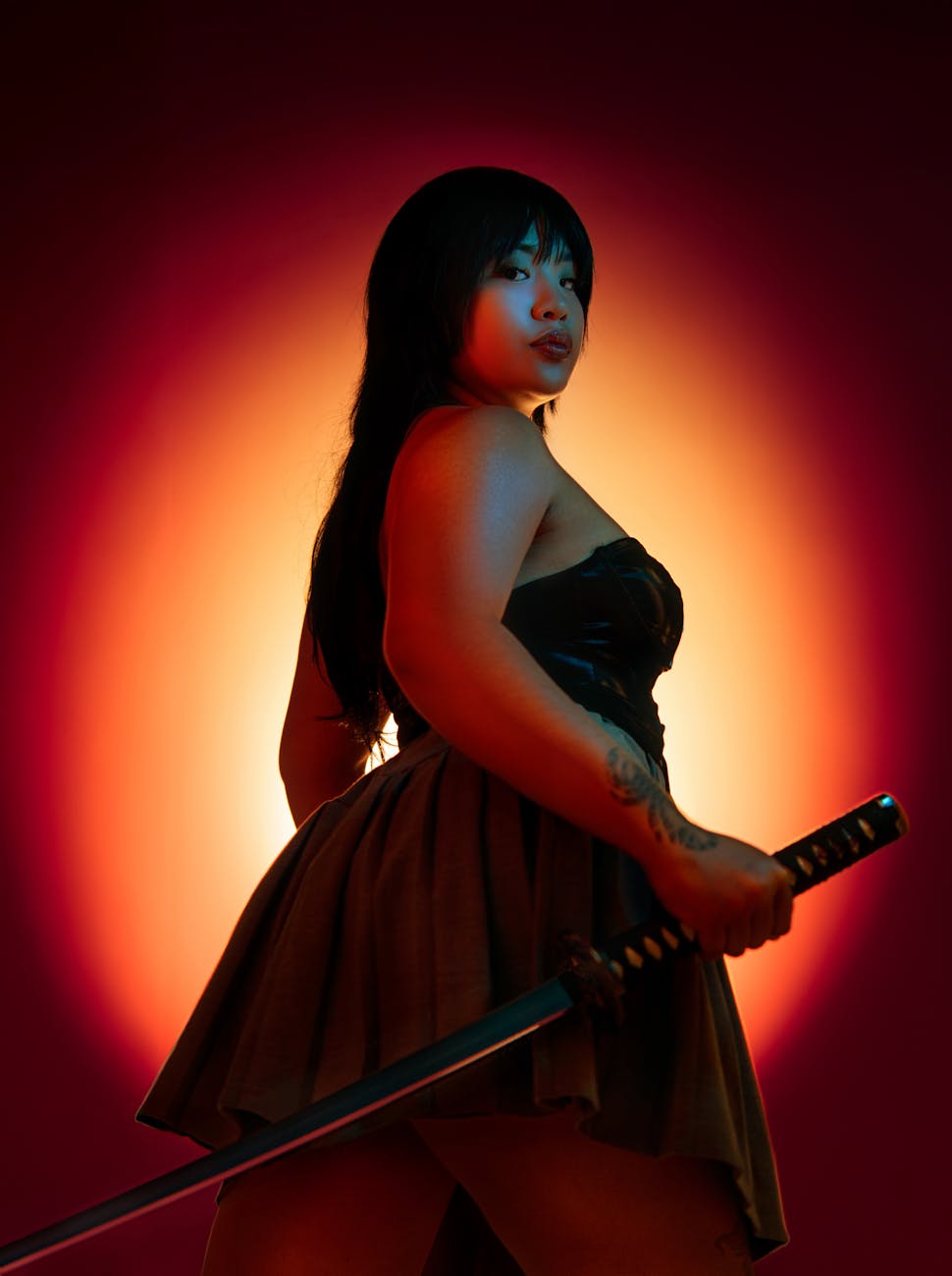
Of course, women so empowered are dangerous. So we are taught to separate the erotic demand from most vital areas of our lives other than sex. And the lack of concern for the erotic root and satisfactions of our work is felt in our disaffection from so much of what we do. For
instance, how often do we truly love our work even at its most difficult?
The principal horror of any system which defines the good in terms of profit rather than in
terms of human need, or which defines human need to the exclusion of the psychic and emotional components of that need – the principal horror of such a system is that it robs our work of its erotic value, its erotic power and life appeal and fulfilment. Such a system reduces work to a travesty of necessities, a duty by which we earn bread or oblivion for ourselves and those we love. But this is tantamount to blinding a painter and then telling her to improve her work, and to enjoy the act of painting. It is not only next to impossible, it is also profoundly cruel.
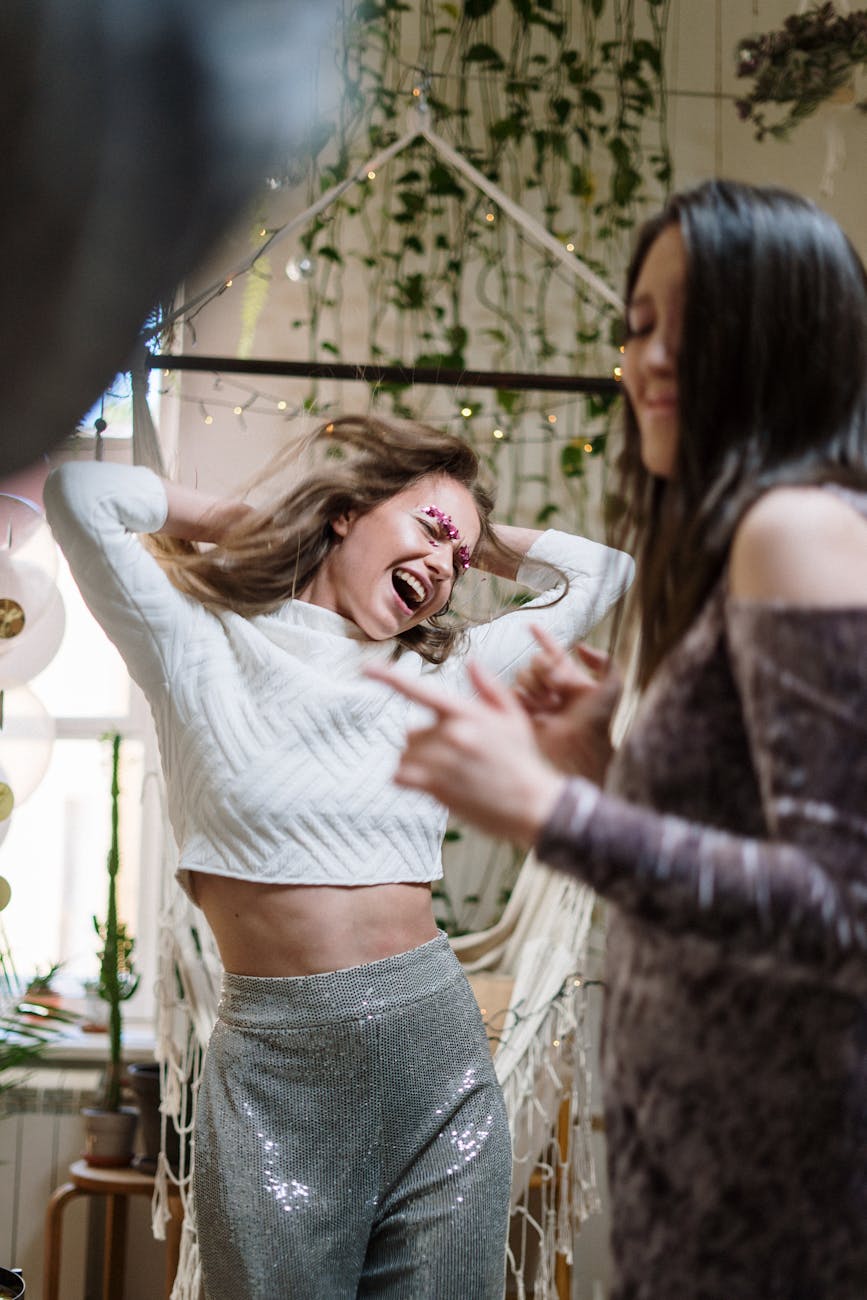
As women, we need to examine the ways in which our world can be truly different. I am speaking here of the necessity for reassessing the quality of all the aspects of our lives and of our work, and of how we move toward and through them.
The very word erotic comes from the Greek word eros, the personification of love in all its aspects – born of Chaos, and personifying creative power and harmony. When I speak of the erotic, then, I speak of it as an assertion of the lifeforce of women; of that creative energy empowered, the knowledge and use of which we are now reclaiming in our language, our history, our dancing, our loving, our work, our lives.
There are frequent attempts to equate pornography and eroticism, two diametrically opposed uses of the sexual. Because of these attempts, it has become fashionable to separate the spiritual (psychic and emotional) from the political, to see them as contradictory or antithetical. “What do you mean, a poetic revolutionary, a meditating gunrunner?” In the same way, we have attempted to separate the spiritual and the erotic, thereby reducing the spiritual to a world of flattened affect, a world of the ascetic who aspires to feel nothing. But nothing is farther from the truth. For the ascetic position is one of the highest fear, the gravest immobility. The severe abstinence of the ascetic becomes the ruling obsession. And it is one not of self-discipline but of self-abnegation.
The dichotomy between the spiritual and the political is also false, resulting from an incomplete attention to our erotic knowledge. For the bridge which connects them is formed by the erotic – the sensual – those physical, emotional, and psychic expressions of what is deepest and
strongest and richest within each of us, being shared: the passions of love, in its deepest meanings. Beyond the superficial, the considered phrase, “It feels right to me,” acknowledges the
strength of the erotic into a true knowledge, for what that means is the first and most powerful guiding light toward any understanding. And understanding is a handmaiden which can only wait upon, or clarify, that knowledge, deeply born. The erotic is the nurturer or nursemaid of all our deepest knowledge.
The erotic functions for me in several ways, and the first is in providing the power which comes from sharing deeply any pursuit with another person. The sharing of joy, whether physical, emotional, psychic, or intellectual, forms a bridge between the sharers which can be the basis for understanding much of what is not shared between them, and lessens the threat of their difference.
Another important way in which the erotic connection functions is the open and fearless underlining of my capacity for joy. In the way my body stretches to music and opens into response, hearkening to its deepest rhythms, so every level upon which I sense also opens to the erotically satisfying experience, whether it is dancing, building a bookcase, writing a poem, examining ai idea.
That self-connection shared is a measure of the joy which know myself to be capable of feeling, a reminder of my capacity for feeling. And that deep and irreplaceable knowledge of our capacity for joy comes to demand from all of my life that it b lived within the knowledge that such satisfaction is possible and does not have to be called marriage, nor god, nor an afterlife.
This is one reason why the erotic is so feared, and so often relegated to the bedroom alone, when it is recognized at all. Fo once we begin to feel deeply all the aspects of our lives, we begin to demand from ourselves and from our life-pursuits that the1 feel in accordance with that joy which we know ourselves to b capable of. Our erotic knowledge empowers us, becomes a lens through which we scrutinize all aspects of our existence, forcing us to evaluate those aspects honestly in terms of their relative meaning within our lives. And this is a grave responsibility, projected from within each of us, not to settle for the convenient the shoddy, the conventionally expected, nor the merely safe.
During World War II, we bought sealed plastic packets o white, uncolored margarine, with a tiny, intense pellet of yellow colouring perched like a topaz just inside the clear skin of the bag We would leave the margarine out for a while to soften, anc then we would pinch the little pellet to break it inside the bag releasing the rich yellowness into the soft pale mass o margarine. Then taking it carefully between our fingers, w< would knead it gently back and forth, over and over, until the colour had spread throughout the whole pound bag of margarine, thoroughly colouring it. I find the erotic such a kernel within myself. When released from its intense and constrained pellet, it flows through and colours my life with a kind of energy that heightens and sensitizes and strengthens all my experience.
We have been raised to fear the yes within ourselves, our deepest cravings. But, once recognized, those which do not enhance oui future lose their power and can be altered. The fear of our desires keeps them suspect and indiscriminately powerful, for to suppress any truth is to give it strength beyond endurance. The fear that we cannot grow beyond whatever distortions we may find within ourselves keeps us docile and loyal and obedient, externally defined, and leads us to accept many facets of our oppression as women.
When we live outside ourselves, and by that I mean on external directives only rather than from our internal knowledge and needs, when we live away from those erotic guides from within ourselves, then our lives are limited by external and alien forms, and we conform to the needs of a structure that is not based on human need, let alone an individual’s. But when we begin to live from within outward, in touch with the power of the erotic within ourselves, and allowing that power to inform and illuminate our actions upon the world around us, then we begin to be responsible to ourselves in the deepest sense. For as we begin to recognize our deepest feelings, we begin to give up, of necessity, being satisfied with suffering and self-negation, and with the numbness which so often seems like their only alternative in our society. Our acts against oppression become integral with self, motivated and empowered from within.
In touch with the erotic, I become less willing to accept powerlessness, or those other supplied states of being which are not native to me, such as resignation, despair, self-effacement, depression, self-denial.
And yes, there is a hierarchy. There is a difference between painting a back fence and writing a poem, but only one of quantity. And there is, for me, no difference between writing a good poem and moving into sunlight against the body of a woman I love.

This brings me to the last consideration of the erotic. To share the power of each other’s feelings is different from using another’s feelings as we would use a Kleenex. When we look the other way from our experience, erotic or otherwise, we use rather than share the feelings of those others who participate in the experience with us. And use without consent of the used is abuse. In order to be utilized, our erotic feelings must be recognized. The need for sharing deep feeling is a human need. But within the European-American tradition, this need is satisfied by certain proscribed erotic comings-together. These occasions are almost always characterized by a simultaneous looking away, pretense of calling them something else, whether a religion, a f mob violence, or even playing doctor. And this misnaming the need and the deed give rise to that distortion which result in pornography and obscenity – the abuse of feeling.
When we look away from the importance of the erotic in the development and sustenance of our power, or when we look away from ourselves as we satisfy our erotic needs in concert with others, we use each other as objects of satisfaction rather than share our joy in the satisfying, rather than make connection with our similarities and our differences. To refuse to be conscious of what we are feeling at any time, however comfortable that might seem, is to deny a large part of the experience and to allow ourselves to be reduced to the pornographic, the abused, and the absurd.
The erotic cannot be felt secondhand. As a Black lesbian feminist, I have a particular feeling, knowledge, and understanding for those sisters with whom I have danced hard, played, or even fought. This deep participation has often been the forerunner for joint concerted actions not possible before.
But this erotic charge is not easily shared by women who continue to operate under an exclusively European-American male tradition. I know it was not available to me when I was trying I adapt my consciousness to this mode of living and sensation.
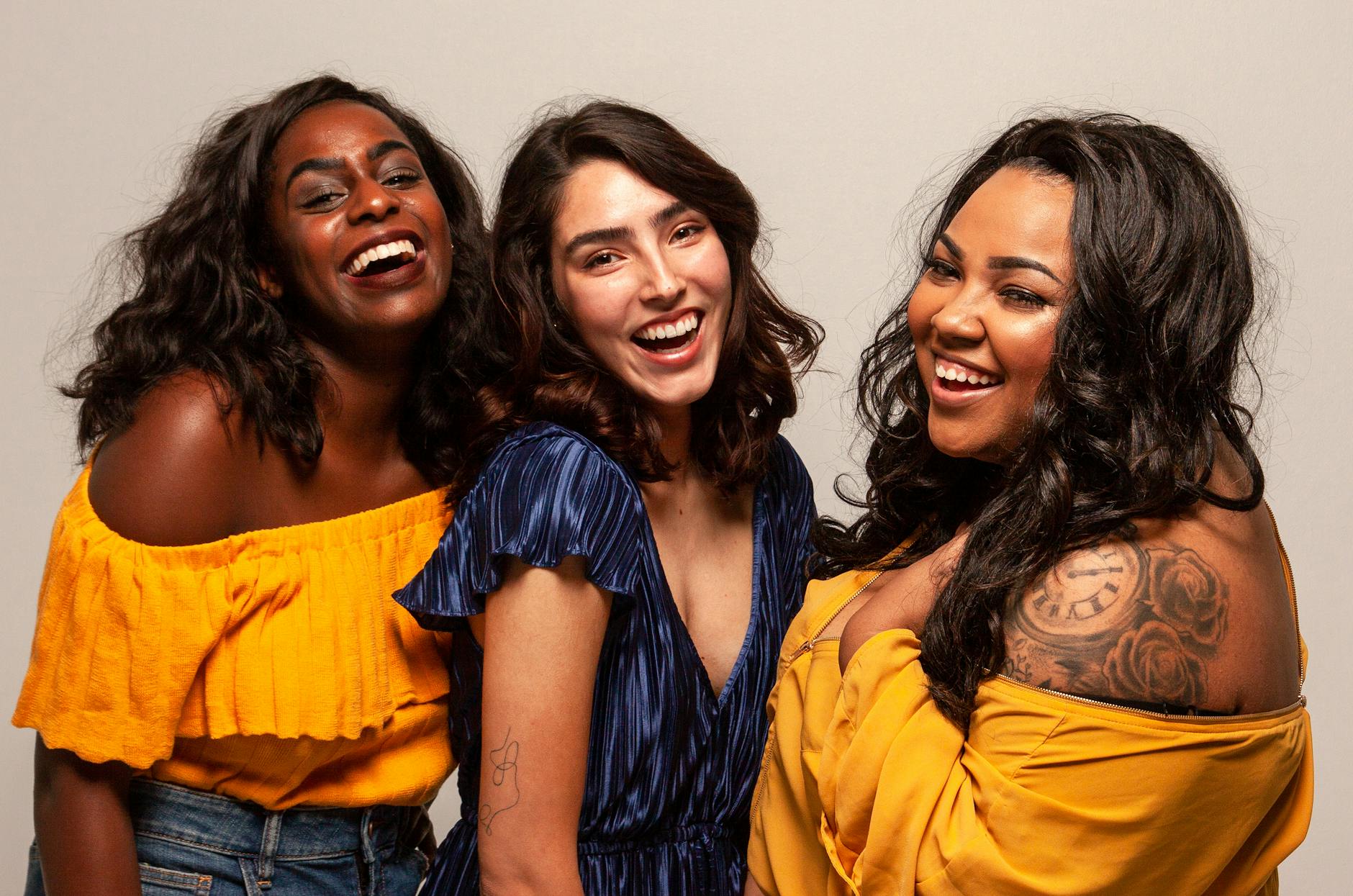
Only now, I find more and more women-identified women brave enough to risk sharing the erotic’s electrical charge without having to look away, and without distorting the enormously powerful and creative nature of that exchange. Recognizing the power of the erotic within our lives can give us the energy to pursue genuine change within our world, rather than merely settling for a shift of characters in the same weary drama.
For not only do we touch our most profoundly creative source, but we do that which is female and self-affirming in the face of a racist, patriarchal, and anti-erotic society.
Source: https://www.centraleurasia.org/wp-content/uploads/2023/02/audre_lorde_cool-beans.pdf

